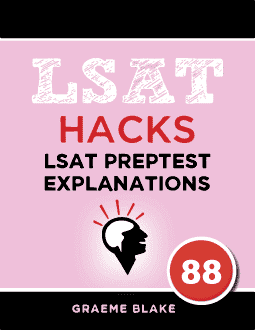QUESTION TEXT: Store owner: My customers are not worried about crime…
QUESTION TYPE: Flawed Reasoning
CONCLUSION: Crime isn’t reducing the number of people shopping at my store.
REASONING: Every day I talk to people who shop in my store and they say they’re not worried about crime.
ANALYSIS: This is a sampling problem. If you’re asking someone who’s already in your shop, if crime’s keeping them out of your store, of course they’ll say no! To see if crime is keeping shoppers from the store, then the store owner needs to talk to people who aren’t coming to the store, and see if it’s crime that’s keeping them from the store.
___________
- Incorrect. The owner isn’t saying crime is not a problem because there’s only evidence of a little bit of crime.
- He’s not appealing to his own opinion.
- His conclusion is only about crime’s effect on his own store, not the neighborhood.
- CORRECT. The sample that the store owner asked is biased. They’re already in the store, so of course crime isn’t keeping them from the store!
- How crime affects the neighborhood other than business is irrelevant. The owner’s argument is only about crime’s effect on the number of people in his store.
Recap: The question begins with “Store owner: My customers are not worried about crime”. It is a Flawed Reasoning question. Learn how to master LSAT Flaw questions on the LSAT Logical Reasoning question types page.


Hi Graeme,
I understand why D is correct (clearly there is a sample issue) but I have reservations as to why B is 100% wrong. The author is concluding crime isn’t reducing the number of people who shop at his store. Why? Well, because he’s asking the customers already in his store–it’s their opinion that crime isn’t worrisome. The owner then takes these opinions and says hey, crime clearly isn’t impacting the people who shop her/reducing the number. Obviously, this is a sampling issue, but I can’t see (especially in the heat of the moment of the test) that you can’t argue he’s drawing his conclusion based on the customers’ opinion.
Hi Derek,
I see what you mean, it’s definitely a tricky question! The main word to focus on here is “personal”. I can see how you could have interpreted “personal opinion” as referring to the customers’ opinions, but here it specifically means the personal opinion of the store owner. Although the store owner relies on the customers’ opinions to make his claim, he doesn’t rely on his own opinion. Therefore he’s not appealing to personal opinion to establish his claim. Hopefully that helps!